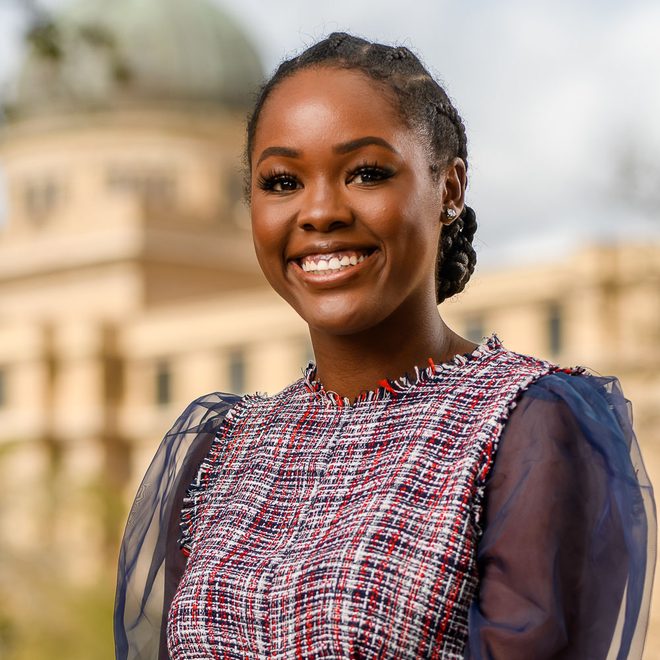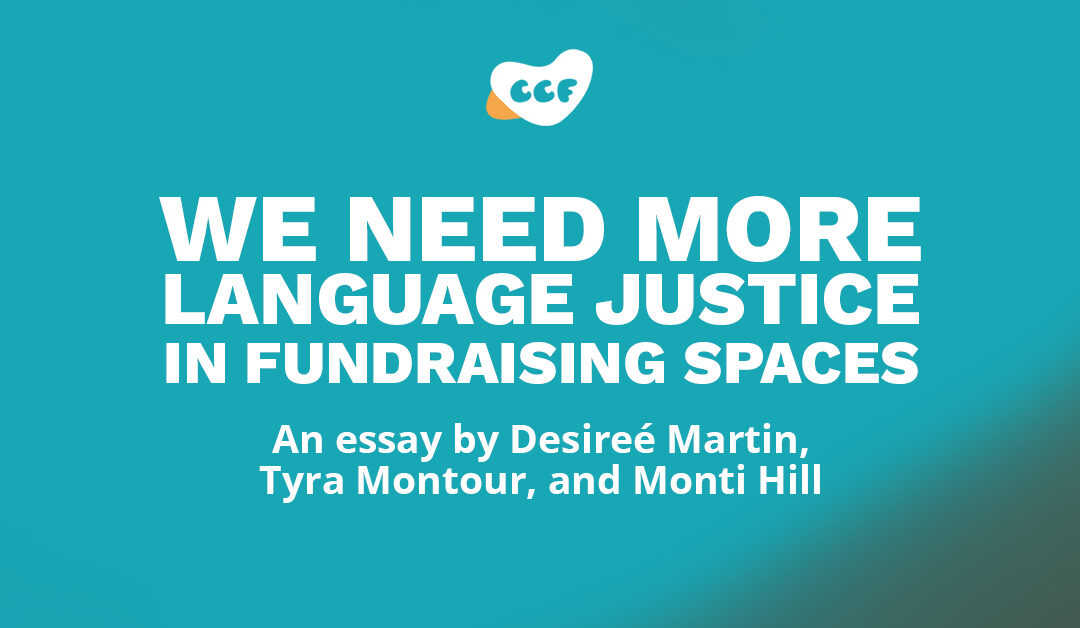By Desireé Martin, Storyteller and Organizer, member of Texas Black Migrant Ecosystem convened by the Black LGBTQIA+ Migrant Project (BLMP), Tyra Montour, MPH, Doctoral Student, member of Texas Black Migrant Ecosystem convened by the BLMP, and Monti Hill, Marketing and Communications Manager, Rebus Foundation, member of Texas Black Migrant Ecosystem powered by BLMP
Language justice is not just a budget addendum for translation services. It’s a commitment to creating a more equitable and inclusive society.
Language barriers can significantly hinder participation for marginalized communities, particularly in contexts where fundraising is essential for accessing educational or cultural programs.
Language justice involves creating an environment where our humanity and the humanity of others are respected through the use of language that doesn’t center on Western culture.
Language justice is not just a budget addendum for translation services. It’s a commitment to creating a more equitable and inclusive society. It’s about honoring our diverse backgrounds and ensuring that everyone from all cultural backgrounds has the opportunity to communicate and be understood.
As we continue to see policy and programs become under-resourced, the divestment of language justice services from progressive initiatives persists; it is critical for principled philanthropists to create a world where everyone, regardless of their language background, has the chance to thrive.
We all deserve access to the resources and opportunities available to us.
For a significant number of individuals, mainly Black migrants in the United States, the lack of language justice in philanthropic efforts creates substantial barriers when trying to access necessary funding to support the services someone might need.
For instance, when legal aid nonprofits provide people with know-your-rights resources, training, and legal aid, those resources are sometimes limited because of language barriers. The limitations make it difficult to seek services and speak to someone who knows their native language—making their stay in deportation longer.
With a stable philanthropic landscape for language justice, migrants can voice their concerns and priorities with dignity.
For many, especially Black migrants in the US, the absence of language justice in philanthropy serves as a barrier to funding, as well as to the discussions that determine where and how that funding is allocated within the community.
Policies are broadening the immigration enforcement system and creating deeper connections within the criminal legal system. This not only perpetuates the pipeline of the prison industrial complex but also intensifies the demand for social services in immigration spaces.
Language justice is the key to ensuring everyone has the opportunity to participate fully in the social and economic fabric of our society.
It’s past time that the philanthropy landscape makes space for communities that want to build intentional futures. Implementing language justice-rooted initiatives can bring positive change and create a more inclusive and equitable future.
Community Centric-Fundraising teaches us how to develop a system change approach to build more equitable philanthropic systems that can change and improve for all people – especially marginalized communities. By creating an anti-racist approach to language justice, more nonprofit organizations can work closely with legal access groups and lawyers.
We have to start asking ourselves what a future with language justice looks like. It could include providing room to hire language justice translators and community groups, or requests to expand support and ask for more language learning workshops. There are so many possibilities for everyone to thrive.
When diversifying language access with BIPOC communities, organizations can enhance their fundraising capabilities and ensure their initiatives are accessible to a broader audience.
It’s past time that the philanthropy landscape makes space for communities that want to build intentional futures. Implementing language justice-rooted initiatives can bring positive change and create a more inclusive and equitable future.
Expanding language justice services and improving funding in the sector will allow more inclusive and thriving communities for many im/migrants and their dignity to thrive in this country. When someone is free to speak their native language, there’s a greater chance to support them with their needs or provide legal aid.
The future of language justice and access to services means developing futuristic pathways that uproot the traditional ones in our sector.
Ensuring that people can access information in their primary language to secure housing, healthcare, education, or even legal assistance improves the quality of life for individuals and also strengthens the sector’s immigration organizing and overall well-being.
To address systemic inequities, stereotypes and biases that perpetuate discrimination and marginalization in philanthropy must be dismantled. Funding and resources can be expanded beyond legal aid services and be allocated to developing an ecosystem of interruptions. Expand outreach services for BIPOC to apply to become interpreters and provide a decent wage for their services.
Including language justice services creates a space where multilingual communities can actively participate in and drive initiatives that address their unique priorities. Language-inclusive policies and practices help to build spaces where no one’s identity leaves them out of the conversation.
The philanthropy table just needs to make space for us and all of our primary languages.
The Texas Black Migrant Ecosystem (TBME) is a new collaborative comprised of politically aligned community members, leaders, and organizations committed to addressing the power-building needs of Black migrant communities across Texas.

Desirée Martin
Desireé (she/her) is a Texas-raised storyteller and organizer who has shaped narratives of liberation and amplified the stories of underrepresented communities for over a decade. With a deep respect for people power, she is committed to advancing Black feminist thought and praxis. She earned a Bachelor of Arts in communications from the University of Houston with a focus in advertising and has been a member of the Texas Black Migrant Ecosystem powered by the Black LGBTQIA+ Migrants Project since 2022.

Monti Hill
Internal Operations Committee of Texas Black Migrant Ecosystem powered by Black LGBTQIA+ Migrants Project. Monti (she/her) is the Marketing and Communications Manager for Rebus Foundation. Crafting promotional materials, implementing social media campaigns, and nurturing partnerships to expand an open publishing ecosystem. As the digital community grows and expands, it’s essential to support intentional visual storytelling, branding, and marketing for communities to begin healing and ensuring marginalized voices are leading the narratives.

Tyra Montour
Tyra (she/her) is a health education PhD candidate at Texas A&M University, where she combines her communication skills with a public health background to address health literacy disparities in vulnerable populations. Previously, she worked as a graduate research assistant, focusing on aligning scientific research with community needs, and now serves as a social media strategist for Equitable Cities LLC. With a BA in Communications and New Media from Gardner-Webb University and a Master of Public Health from Morehouse School of Medicine, she is also an active member of Alpha Kappa Alpha Sorority, Incorporated. Member of Texas Black Migrant Ecosystem powered by Black LGBTQIA+ Migrants Project
Discover more from CCF
Subscribe to get the latest posts sent to your email.


Thank y’all for this! Access in your native language is a human right. Love to y’all in Texas!!